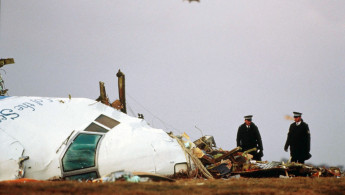US accused of 'abducting' Lockerbie suspect from Libya
The United States has been accused of unlawfully 'abducting' a former Libyan intelligence agent charged with preparing the bomb that exploded aboard the Pan Am flight 103 over Lockerbie, Scotland in 1988.
Mohammed Abouagela Masud appeared in a US courtroom last week, where he was charged with setting the timer for the bomb that destroyed the Boeing 747 flying from London to New York. The explosion killed 259 people on board and 11 people in what is still the deadliest terrorist attack to have ever hit the UK.
Masud’s family have accused the United States of playing a role in kidnapping Masud with the help of local militias. They claim the 71-year-old was ‘abducted’ from his home in Tripoli, Libya's capital, around 1 am on 17 November by armed men sent by a local militia commander. He was then allegedly held by another group for two weeks, before being transferred to US custody.
Libyan officials cited by The Observer claim that Masud was seized by the members of a militia headed by Abdel Ghani al-Kikli, known as 'Gheniwa' - a notorious local commander in Tripoli’s Abu Salem neighbourhood.
"We have filed a complaint with the attorney general’s office and demanded an investigation of the people who kidnapped him and those who handed him over," Masud’s nephew Abdel Monein al-Muraimi said, as quoted by the British newspaper.
"We want them to face justice. This is an assault on a citizen in his home."
The alleged abduction raises questions about the US' willingness to break international law to pursue alleged fugitives.
Diana Eltahawy, Amnesty International’s deputy regional director for the Middle East and North Africa, criticised the US' actions.
"We have long called for accountability for crimes [including the Lockerbie attack] under international law but this has to be done in a manner that respects due process and upholds fair trial rights," she was quoted as saying by The Observer.
"In this case even a facade of legality was not maintained… there was no hearing for [Masud] to challenge the lawfulness of his detention and transfer."
Libyan Prime Minister Abdulhamid al-Dbeibah indirectly acknowledged on Thursday that his administration had been involved in Masud's transfer to the United States.
"An arrest warrant was issued against him from Interpol. It has become imperative for us to cooperate in this file for the sake of Libya's interest and stability," he said in a televised speech.





 Follow the Middle East's top stories in English at The New Arab on Google News
Follow the Middle East's top stories in English at The New Arab on Google News


